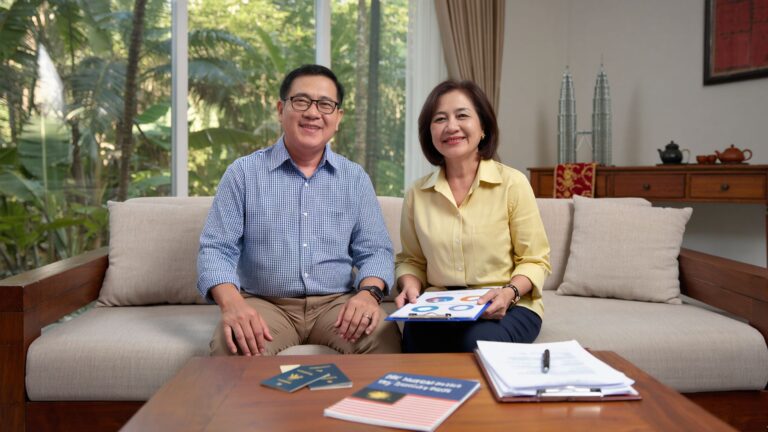BREAKING: Malaysia revealed that its revamped MM2H (Malaysia My Second Home) program has brought in nearly RM840 million since last October — with over RM237 million flowing into local real estate alone. On the surface, it reads like a typical foreign investment win.
But there’s something bigger brewing under the surface. And if you’re a Malaysian property investor — or thinking of becoming one — you need to start seeing what this really is:
It’s not just tourism. It’s not just retirement.
MM2H is being used to quietly reposition Malaysia as one of Asia’s most tokenizable real estate economies.
Here’s What This Signals — and How You Profit from It
1. Malaysia is building a sandbox for global real estate capital
These MM2H applicants aren’t your typical retirees. Most are savvy international capital movers testing the waters. The new property rule (requiring foreign ownership from RM600k–2M) isn’t a barrier — it’s a filter.
Malaysia is grooming its real estate market to become a trusted entry point for capital from China, the Middle East, and beyond. It’s positioning itself to tokenize this inventory down the line.
2. The ‘Platinum Class’ properties are future on-chain blue chips
Only 19 Platinum-category MM2H applications were approved — but these buyers had to commit to the top tier of real estate. That segment? Likely to be the first experimented on when Malaysia joins the RWA (Real World Assets) wave.
Think:
– Fractional ownership of Bukit Tunku villas
– Blockchain-verified luxury in Mont Kiara
– Global buyers holding tokenized proof of title via a wallet
If you hold land or units in these areas now, you’re holding inventory that could be sold globally, 24/7, like stocks — once tokenization goes live.
3. Developers will begin pricing in digital liquidity premiums
We’re moving into a world where property isn’t just illiquid dirt. When tokenized, your RM1M condo could become a globally tradable asset — no middlemen, no weeks of paperwork.
Developers who prepare for this — by building “token-ready” assets (digitally trackable titles, integrated financial reporting, etc.) — will be able to charge a premium. Investors who buy in early stand to flip for much more.
4. You’ll soon compete with wallets, not just people
Right now, buyers come from Selangor, Singapore, or Shanghai. In 3–5 years, they’ll come from Metamask.
Smart contracts will allow DAOs, investment groups, or even AI agents to buy a fraction of your landed home. MM2H’s steady influx of foreign buyers is just the rehearsal. The main show? An open property market powered by global crypto capital.
5. Malaysia’s edge: Legal clarity + low-entry points
Unlike Thailand or Indonesia, Malaysia offers foreigners strong legal protections and full ownership (not just leaseholds). Combine that with relatively low property prices, and you have a perfect storm for RWA experimentation.
Malaysia won’t be the biggest real estate market in Asia — but it might be the first fully digital, tokenized one.
Final Thought
MM2H’s headline numbers may seem like business as usual. But if you read between the lines, it’s clear: Malaysia is turning its property market into a future-proof, crypto-integrated asset class.
And if you already own real estate — or are about to — you need to start asking:
“What happens when my property becomes a tradable financial instrument?”
Because that world is coming faster than anyone’s ready for.
And MM2H? It’s the soft launch.
